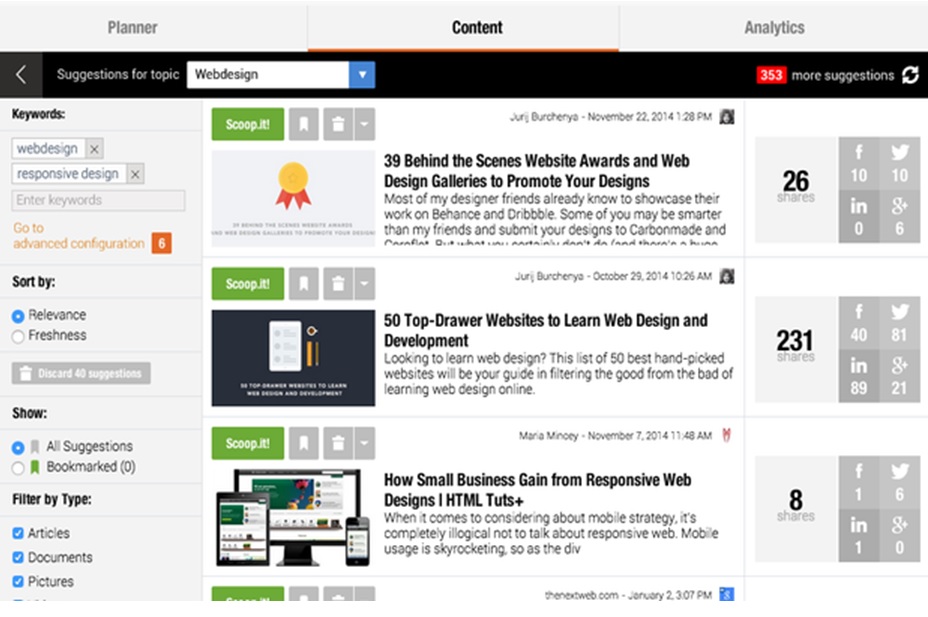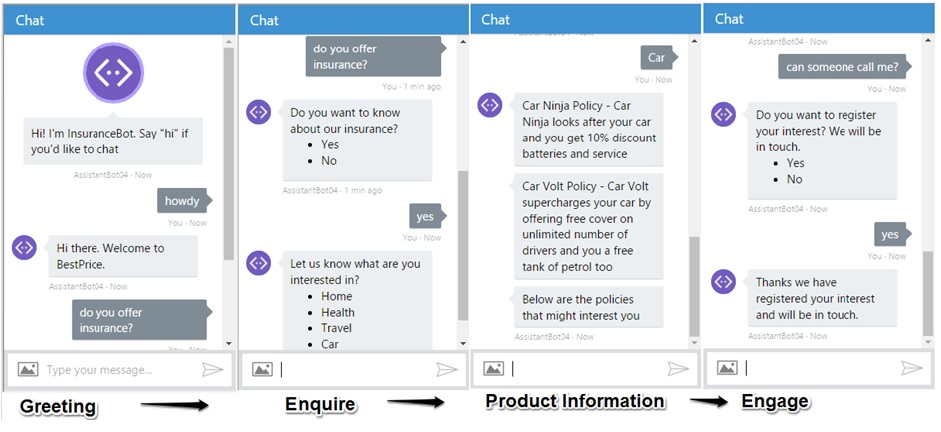
One of the most interesting qualities about AI technology is that the benefits are virtually limitless. Nearly every industry stands to gain in some way from the power of machines, and this technology is just as relevant to content marketers as it is to the most complex tech companies.
However, it seems that the integration of AI and marketing is only beginning to grow. Today, nearly 40% of marketing departments report that they are adopting AI into their strategies, and the majority do believe that the technology could make positive improvements to their tactics.
Although AI technology has nearly endless amounts of potential for ALL business operations, there is clear evidence that it can be especially useful for content marketers. If your marketing department is weighing the options of how it could benefit from AI, or is looking for inspiration on where to begin, here are three clear-cut areas where this technology can support a strong content strategy.â
Curation
Ideation is never easy. Year after year, the process of creating engaging content is reported as marketers’ top challenge. This is especially true for brands that focus on curating content for topics that require intense research and knowledge.
The key to staying relevant in the ever-increasing noise of the echo chamber is by providing meaningful and relevant insights, making bold claims, and showcasing expertise. With AI technology, content marketers have access to data reports that can guide their ideation and creation processes so each piece of content is highly targeted to the core audience.
AI systems like Scoop.it can help support a more strategic curation process by analyzing audience sentiment to understand the subjects and niches that pique their interest.
â
AI-based predictive analysis systems can calculate audience reactions and sentiment with various topics to give content marketers a feel for which subjects will gain the most traction. Data-driven tools can also provide reports in regards to shifts in the market that could signal topics that will soon generate buzz.
The insights from AI systems can then be used to create high-value content assets, such as tutorials, whitepapers, webinars, and long-form content. These types of thought-leadership assets are heavily based in research and can be especially influential for building brand trust, credibility, and even increasing conversion rates. Furthermore, these assets can be used as a revenue stream. For example, you can repurpose the content as an eBook to sell on your website.
By using AI-assisted data, creative and marketing teams can craft messaging that matches up with what their ideal customers are looking for.
â
Personalization
Creating content that is specific to each viewer has been a top priority for many marketers as of late, but the execution of this process is often quite difficult. In order to implement effective personalization, teams must have access to loads of consumer data which must be properly analyzed and translated into actionable strategies.
While personalization has been a marketing buzzword for many years, recent advancements in AI technology are finally making this concept a full-blown reality. Machine learning systems are able to gather relevant data points from website visitors and customers. From here, they can build individual profiles that can be used to create brand experiences tailored to each person. Tools like OneSpot use AI-based algorithms and web interaction data to analyze engagement and match content to individual preferences.â
Customized offers and recommendations are in high demand among consumers, as 80% revealed they would be more likely to purchase from a company that offers personalization. By using AI-enabled software to track each customer’s behaviors and preferences, brands can use this information to guide their content strategies through multiple approaches, including customized content that is specific to each customer, as well as sending individualized offers for higher conversions.
Real-time engagement
The nature of content marketing these days is very interactive. If a user has a question or wants more information, they should be able to get in touch with a brand instantly. One of the easiest ways to turn new, potential, and existing customers off is by making it hard to get in contact. For this reason, many companies are using applications like AI-powered chatbots to learn about the type of queries people have, formulate appropriate responses, and in some cases, make sales.
â
Data-driven chatbots use machine learning to track and analyze each conversation and make improvements with every interaction. Due to its ability to learn and adjust to meet each customer’s needs around the clock, chatbots receive higher engagement levels than any other tactic. In fact, 60% of consumers state that they would gladly interact with a chatbot in order to get an answer to a question or to resolve an issue.
Even though chatbots have only been around for a few short years, the benefits are more or less universal among consumers.

Conclusion
AI-powered systems and data-driven technology allows marketing teams to meet their goal of creating more relevant, high-quality content. Marketers can also use AI to gain the proper insights to create messaging tailored to each viewer’s preferences. Moreover, they can have automated chatbots to help people every step of the way.
AI is expected to transform much of what content marketers are able to do by supporting each step of their strategies with data. By implementing this kind of technology into these important aspects of content marketing, businesses are in a much better position to place the right content in front of the most interested eyes.






